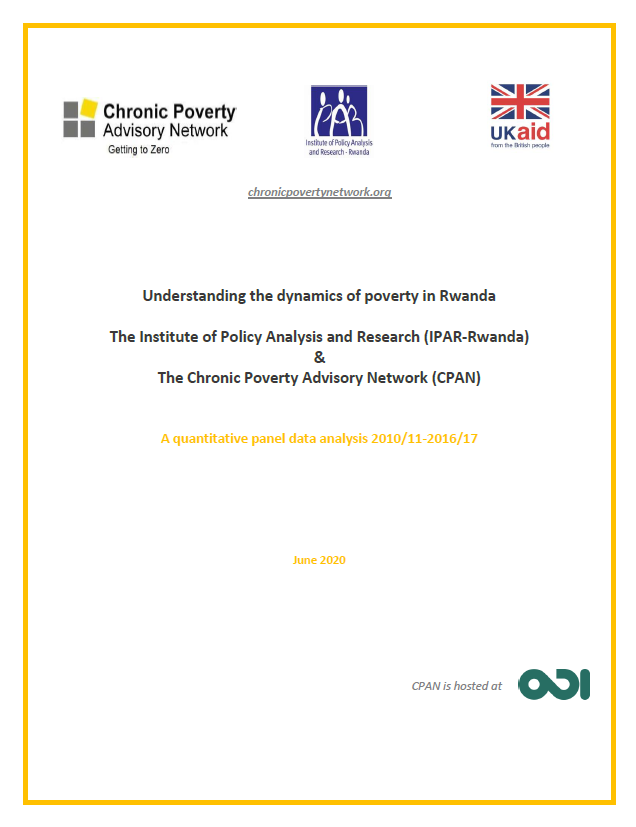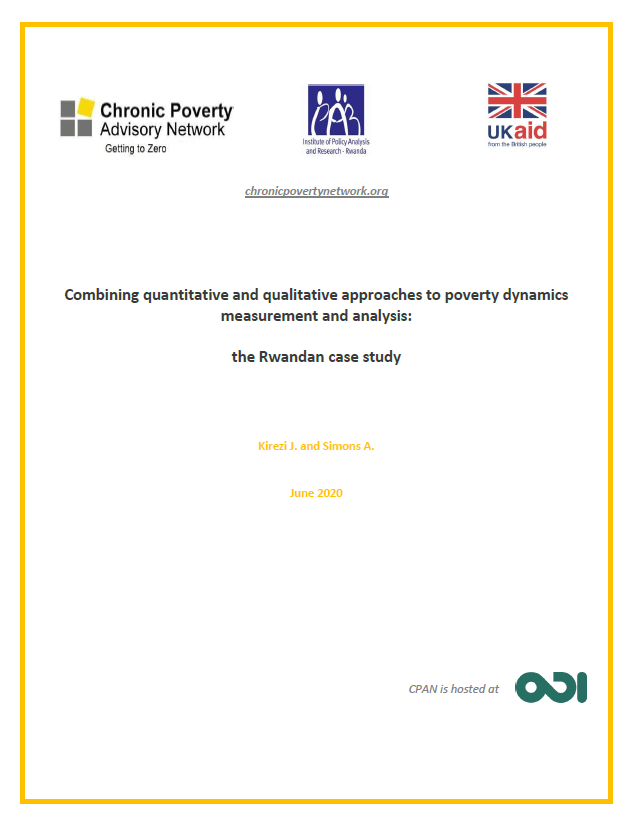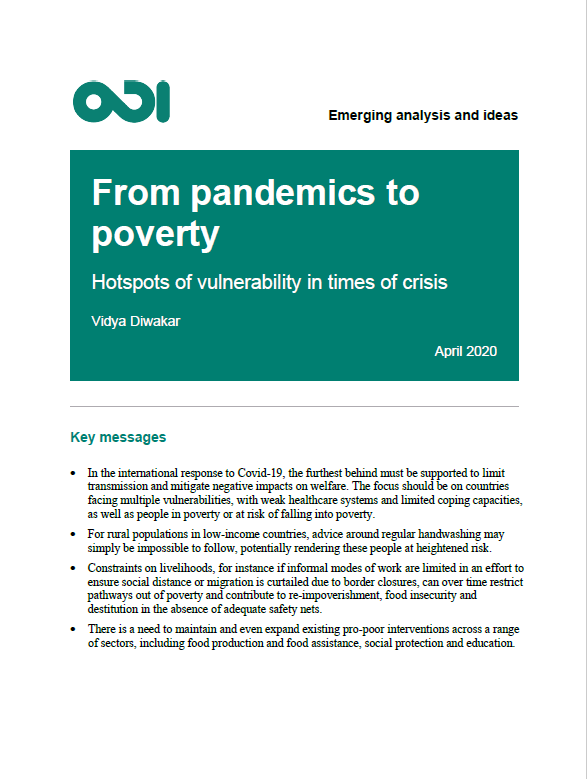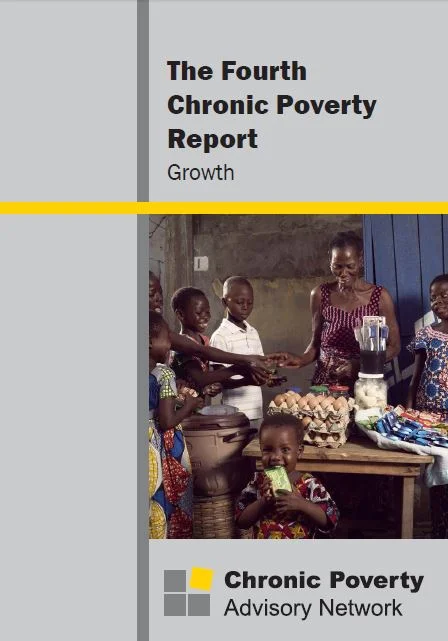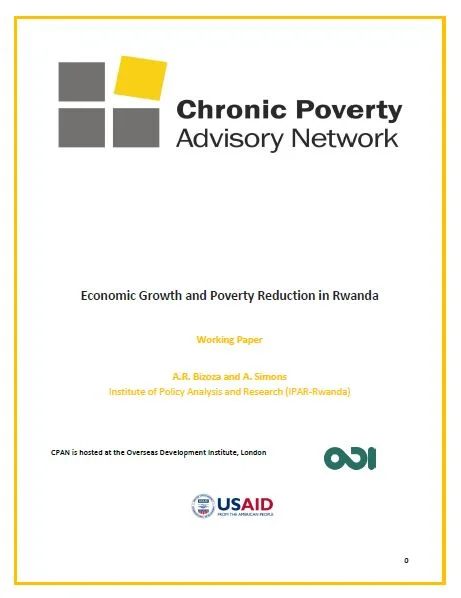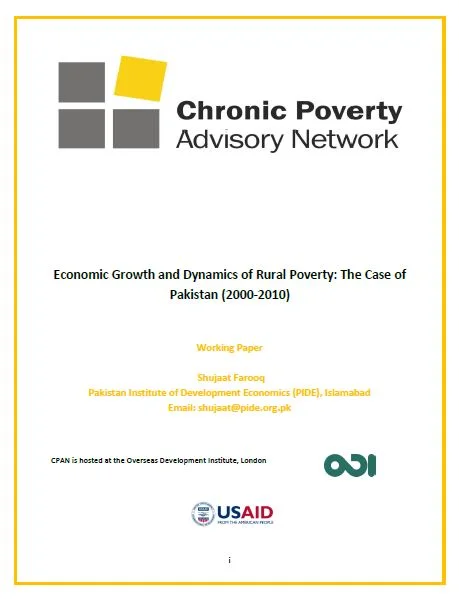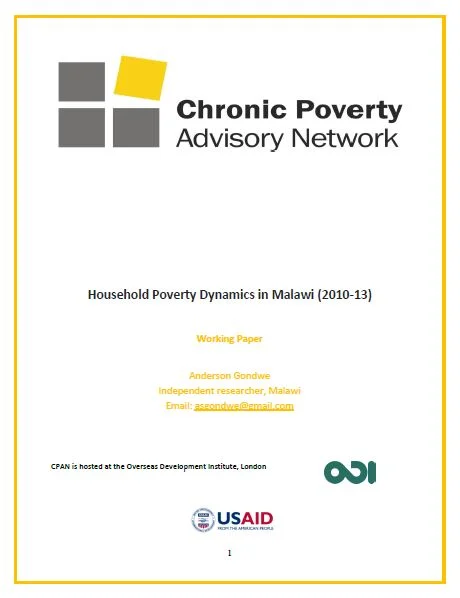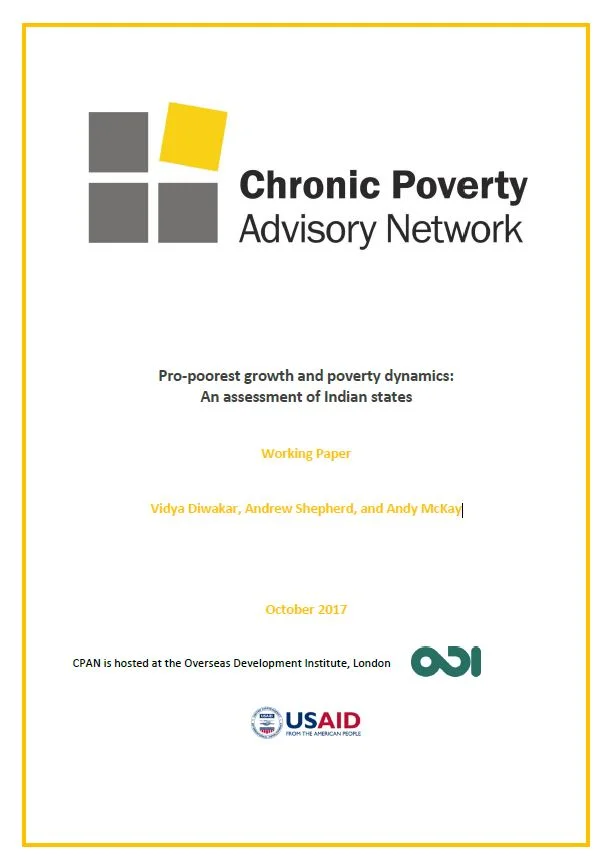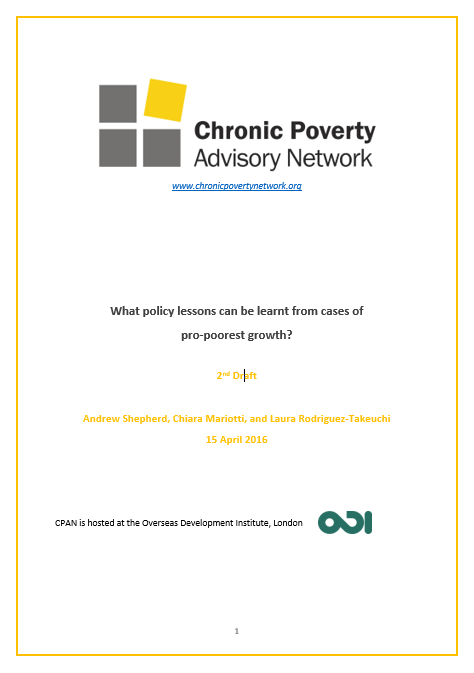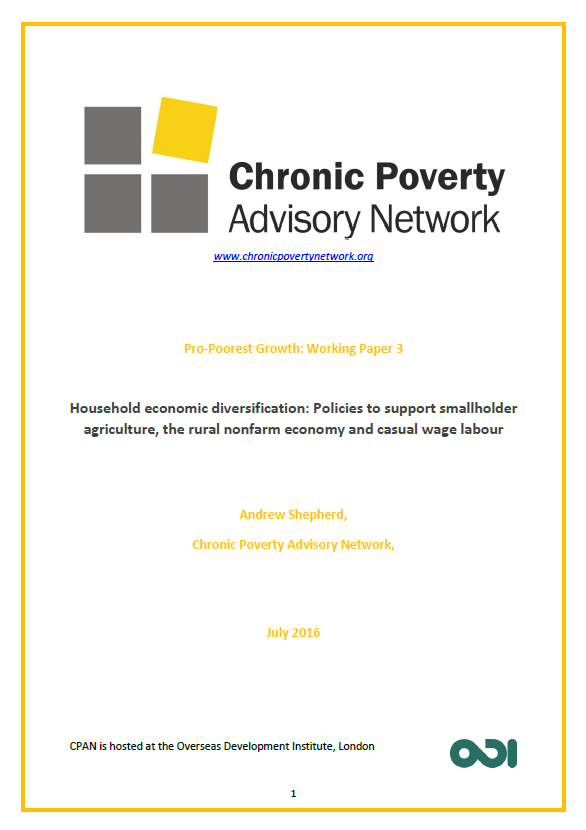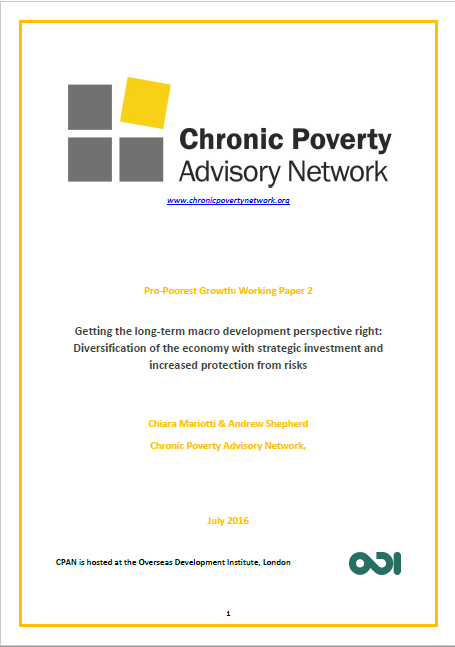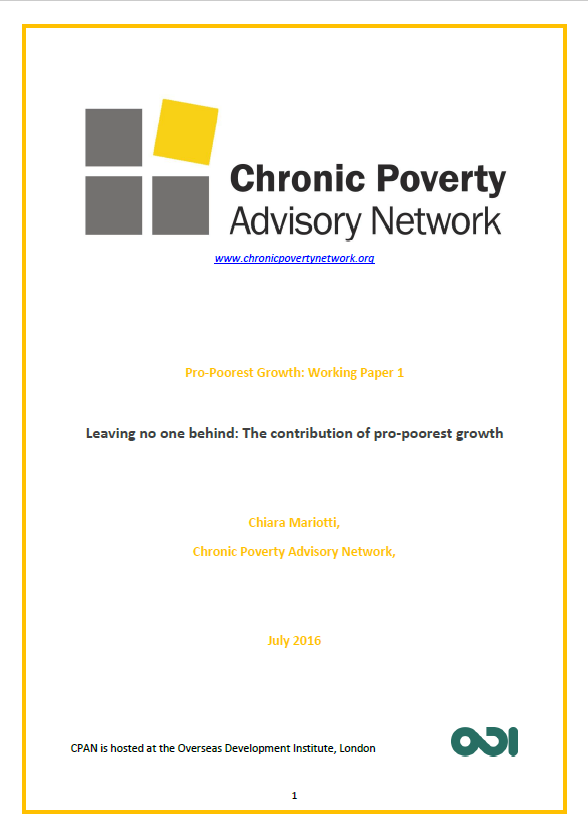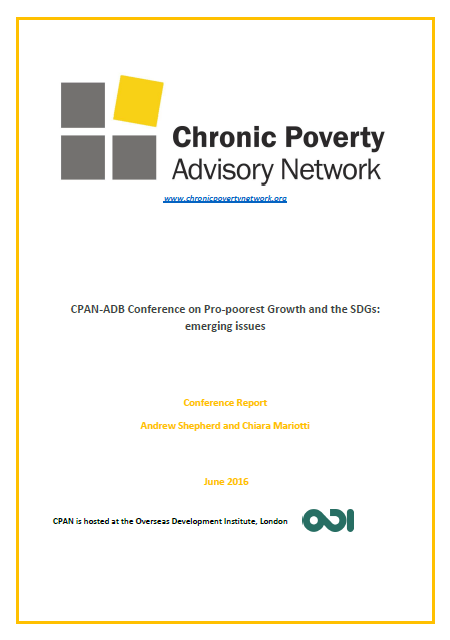This research examined why some households in Malawi escape and remain out of poverty (sustainable poverty escape), while other households escape it only to fall back into poverty (transitory poverty escape) and still others descend into poverty for the first time (impoverishment).
Read MoreLeave No One Behind in progress to the Sustainable Development Goals: Priority actions for governments by 2020
The 2014–15 Chronic Poverty Report: the road to zero extreme poverty argued that three objectives had to be achieved to get to zero poverty: chronic poverty had to be tackled; impoverishment had to be stopped; and escapes from poverty needed to be sustained. The report identified 14 policy areas that could be critical for the eradication of extreme poverty and leaving no one behind in the process. These can also be clustered into four pillars: human development, pro-poorest growth, transformative social change and resilience.
This paper provides a reasonably comprehensive basis for identifying policies that will contribute to leaving no one behind, since the chronically poor are, by definition, those who are getting left behind in the process of development. Of course, among the chronically poor are those who are able to make progress and sustain escapes from poverty; there are also those who are stuck on the consumption floor, which has barely moved in several decades, some of whom may be experiencing ‘intersecting inequalities’ (those pertaining to different attributes like age, religion, gender, embodied in the same person) – or, in simpler terms, those who experience multiple disadvantages.
This paper explores context through a re-categorisation of countries using income levels, institutional fragility and progress on poverty, and an analysis of countries’ policy frameworks in 2015. It then explores the above priorities in context, and in each policy area outlines key measures that will underpin progress and enhance access for the poorest and most marginalised.
The aim of this analysis is to stimulate debate as to what policy mix is appropriate, necessary and desirable in different country circumstances. Once policies have been selected, policy consistency over time, as well as their sequencing; cross-government coordination to ensure delivery of the right combinations; and multi-stakeholder partnerships for implementation are indispensable tools to reach the objective of LNOB and achieve the SDGs for all. Governments vary in the extent to which they have such mechanisms in place and allow them to influence policy and implementation.
Authors: Andrew Shepherd and Kate Bird with Moizza Binat Sarwar
The Political Economy of Sustained Escapes from Poverty in Ethiopia, Rwanda and Tanzania
This paper examines the politics of poverty reduction in Ethiopia, Tanzania and Rwanda using the political settlements framework. It discusses the extent to which the political settlement prevailing in any country influences the consistency and quality of policy making and the success or failure of anti-poverty policies and initiatives
Read MoreSustaining poverty escapes in Niger: Policy Implication Brief
This policy brief highlights the policy recommendations to contribute to achieve sustained escapes out of poverty in Niger
Read MoreResilience and sustainable poverty escapes in Niger: national report
The focus of this report is on resilience and household poverty dynamics in Niger, specifically escapes and descents, with a focus on what explains why some households escape poverty and remain out of poverty, while other households escape poverty only to fall back into poverty.
Read MoreSustained poverty escapes in rural Cambodia: Policy Implication Brief
The focus of this brief is on what these findings may mean for interventions and approaches in Cambodia that aim to enable poor households to escape from poverty and to maintain that escape over time
Read MoreResilience and sustained poverty escapes in Rural Cambodia
The focus of this report is on household poverty escapes in rural Cambodia and explains why some households escape poverty and remain out of poverty (sustainable poverty escape, or resilience), while other households escape poverty only to fall back into poverty (transitory poverty escape) and still other descend into poverty for the first time (impoverishment
Read MoreEconomic Growth and Poverty Reduction in Rwanda
The contribution of this paper is to establish knowledge of how and whether the observed economic growth in the past has been pro-poor and identify what are the enablers and constraints of poverty reduction in Rwanda.
Read MoreEconomic Growth and Dynamics of Rural Poverty: The Case of Pakistan (2000-2010)
The specific focus of this report is to analyse the movements of poverty and its linkages with economic growth for 2001-2010 period.
Read MorePro-poorest growth and poverty dynamics: Household Poverty Dynamics in Malawi (2010-13)
This study seeks to provide a detailed understanding of poverty dynamics in Malawi. This has not been done previously due to lack of nationally representative panel data.
Read MorePro-poorest growth and poverty dynamics: An assessment of Indian states
This paper presents initial findings on the relationships between growth, growth incidence across the income distribution and those poverty dynamics in India, a set of relationships which has never previously been investigated.
Read MoreTrends in poverty and inequality and further clustering of developing countries
The objective of this study is to provide an in-depth review of the evidence on poverty and associated inequalities, and on what reduces them, in order to inform the European Union’s reflections on implementing the 2030 agenda for sustainable development.
Read MoreSustaining escapes from poverty
To date, there is little knowledge about what differentiates a sustained escape from a temporary escape, or these from chronic poverty. The principal objective of this research is to develop an understanding of why some households managed to sustain their escapes out of extreme poverty while others fell back into poverty.
Read MoreSustaining poverty escapes in Tanzania - Policy Implications Brief
This brief draws on results of mixed methods research in Tanzania, to offer policy and programming implications for sustained poverty reduction.
Read MoreUnderstanding and supporting sustained pathways out of extreme poverty and deprivation: Tanzania National Report
This report focuses on household poverty escapes in Tanzania and explains why some households escape poverty and remain out of poverty (sustainable poverty escape, or resilience), while other households escape poverty only to fall back into poverty (transitory poverty escape) or descend into poverty for the first time (impoverishment).
Read MoreSustaining poverty escapes in the Philippines - Policy Implications Brief
This policy brief draws on results of mixed methods research in the Philippines, to offer policy and programming implications for sustained poverty reduction.
Read MoreUnderstanding and supporting sustained pathways out of extreme poverty and deprivation: Philippines National Report
This report investigates the drivers of sustained and transitory escapes from poverty in the Philippines
Read MoreUnderstanding and supporting sustained pathways out of extreme poverty and deprivation: Tanzania National Report
This study aimed to explore the factors that sustain escapes from poverty in Tanzania, including pathways out of poverty, the policies/programmes/strategies and institutions that sustain poverty escapes and create resilience, and the effect of political settlements in supporting and sustaining poverty escapes.
Read MoreUnderstanding and supporting sustained pathways out of extreme poverty and deprivation: Ethiopia National Report
This study aimed to interrogate the common factors behind sustained escapes from poverty, as well as policy measures that supported such escapes in Ethiopia.
Read MoreSUSTAINING POVERTY ESCAPES IN RURAL KENYA - Policy Implications Brief
The focus of this brief is on what those findings may mean for interventions and approaches in Kenya that aim to enable poor households to escape poverty and remain out of it.
Read More

